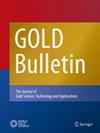The current report discloses the development of gold, silver, and iron nanoparticles using berberine by green synthesis and its evaluation for antimicrobial activity and in vitro cytotoxicity against colon cancer and human cervical cancer cells. The prepared nanoparticles were characterized by Fourier transform infrared (FT-IR) spectroscopy, scanning electron microscopy (SEM), transmission electron microscopy (TEM), and X-ray diffraction analysis. The characterization of results of the prepared nanoparticles satisfied the distinctive properties of the potent nanodrug. The antimicrobial potential was exhibited by all the prepared nanoparticles against the selected microbial strains. The zone of inhibition (mm) exhibited by gold nanoparticles biosynthesized using berberine (BAuNPs) was 15.66 ± 0.47 mm against Pseudomonas aeruginosa, 15.0 ± 1.41 against Escherichia coli, and 15.33 ± 1.24 mm against Staphylococcus aureus. The cytotoxicity study exhibited promising results as compared to pure berberine. The results of the MTT assay of gold nanoparticles against COLO320DM exhibited 92.27 ± 0.14% inhibition, whereas in the case of the SRB assay, it revealed 89.72 ± 0.29% inhibition as compared to other nanoparticles and pure berberine. For Hela cell lines, in the case of the MTT assay, BAuNPs exhibited 92.13 ± 0.64% inhibition while in the SRB assay, it revealed 85.56 ± 0.39% inhibition. The results of the Trypan blue assay revealed that BAuNPs showed 76.54 ± 1.00% inhibition against the COLO320DM cell line, whereas in the case of Hela cell lines, 78.03 ± 1.47% inhibition was observed. The effect exhibited by BAuNPs may be attributed to increased production of reactive oxygen species by treated carcinoma cells that results in oxidation of vital constituents which ultimately causes death of the cell. Thus, these in vitro results demonstrate the promising therapeutic applications of the BAuNPs in nanomedicine.


